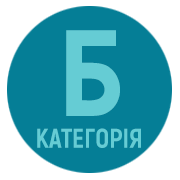POSITIVE PSYCHOTHERAPY AND MGS METHODOLOGY IN THE ORGANIZATION AND CONDUCT OF PSYCHOSOCIAL AND TRADITIONAL GAMES AS ADDITIONAL TOOLS OF GROUP THERAPY, COUNSELING AND COACHING OF CHILDREN WHO EXPERIENCED WAR
DOI:
https://doi.org/10.32782/psyspu/2023.1.3Keywords:
positive psychotherapy, five-step model of positive psychotherapy (PPT), MGS methodology (movement, play, sport), crisis psychology, crisis pedagogy, stressful military factors and symptoms, psychosocial and traditional game, group psychotherapyAbstract
The article highlights the statistical data of the demographic situation of internally and externally displaced Ukrainians as a result of military operations and casualties. An analysis of the consequences of military actions and the traumatic experience of children in war conditions is presented. The possibilities of integrating the experience of European psychological and psychotherapeutic practice into the use of Ukrainian psychologists in working with the traumatic experience of children are analyzed. E. Parruca’s methodology of combining the tools of positive psychotherapy (PPT) and MGS (movement, play, sports) in the organization and conduct of psychosocial and traditional games as additional tools of group therapy, counseling and coaching of children who have encountered war is substantiated. The mechanisms of identifying actual, internal and basic conflicts and further development of primary and secondary abilities in the approach of positive psychotherapy are disclosed. The methodology proposed by E. Parruca for combining the 5-step model of positive psychotherapy counseling and the MGS methodology in group work with children is described. The stages of the 5-step model of PPT counseling are characterized: observation and distancing, inventorying, situational encouragement, verbalization, expansion of goals and stages according to the MGS methodology: warm-up, main part, relaxation, final feedback.
References
Bürgin D., Anagnostopoulos D., the Board and Policy Division of ESCAP. et al. Impact of war and forced displacement on children’s mental health – multilevel, needs-oriented, and trauma-informed approaches. Eur Child Adolesc Psychiatry, 2022. 31, 845–853. URL: https://doi.org/10.1007/s00787-022-01974-z.
Cohen E., Chazan S., Lerner M., Maimon E. Posttraumatic play in young children exposed to terrorism: an empirical study. Infant Mental Health J: Off Publ World Assoc Infant Mental Health. 2010. 31(2):159–181. URL: https://doi.org/10.1002/imhj.20250.
De Jong, J. et al. Trauma, War and Violence: Public mental health in socio-economic context. New York, Boston, Dordrecht, London : Kluwer Academic Press. 2002.
Feldman R., Vengrober A. Posttraumatic stress disorder in infants and young children exposed to war-related trauma. J Am Acad Child Adolesc Psychiatry. 2011. 50(7):645–658. URL: https://doi.org/10.1016/j.jaac.2011.03.001.
Improving children’s wellbeing: An evaluation of NRC’s Better Learning Programme in Palestine January. Norwegian Refugee Council. Author of report: Dr. Ritesh Shah, Faculty of Education and Social Work, University of Auckland. 2017.
Joshi P.T. and Deborah O’Donnell. Consequences of child exposure to war and terrorism. Clinical Child and Family Psychology Review. 2003. 6(4):279–291.
Karatzias,T., Shevlin M. War exposure, posttraumatic stress disorder, and complex posttraumatic stress disorder among parents living in Ukraine during the war. 2023. URL: https://doi.org/10.1111/acps.13529.
Kovalenko N. Transcultural solutions in shaping the readiness of future teachers to interact with children who have encountered war. In search of truth and humanity in the age of war : materials of International Scientific and Training Conference entitled (August 21–26, 2022). Leszno, Poland. 2022.
Kovalenko N.V. The content of the training program for preparing the future teacher to work with children who faced the war. Педагогічні науки: теорія, історія, інноваційні технології, 2022. 7–8 (120): 190–201.
Norwegian Refugee Council. Better Learning Programme 1: Supporting Students’ Recovery in Emergencies, Classroom Sessions. Department of Education, University of Tromsø & Norwegian Refugee Council, Oslo, Norway. 2019.
Parruca E. Positive Psychotherapy embracing MGS Methodology: Psychosocial & traditional games as complementary tools in group therapy, counselling and coaching. 2013.
Pastoor L.d.W. Refugees Well School Intervention Manual: In-Service Teacher Training (INSETT) Psychosocial support to young refugees. Working Paper, 20.02.2019. Oslo : Norwegian Centre for Violence and Traumatic Stress Studies. 2019.
Peseschkian, N. Positive Psychotherapy: Theory and Practice of a New Method. Springer-Verlag Berlin Heidelberg, Germany, 1987. Pp. 271–273; 413–430.
Ritesh Shah. Improving children’s wellbeing: An evaluation of NRC’s Better Learning Programme in Palestine. Norwegian Refugee Council, Oslo, Norway. 2017.
See MOVE Project, founded by UEFA. 2012. URL: http://tdh-childprotection.org/projects/move/description.
Slone M., Mann S. Effects of war, terrorism and armed conflict on young children: a systematic review. Child Psychiatry Hum Dev. 2016. 47(6):950–965. URL: https://doi.org/10.1007/s10578-016-0626-7.
Smith D. Children in the heat of war. APA Monitor. 2001. 32(8):29.
UN Women. Rapid gender analysis of Ukraine: Secondary data review, March 31 2022. URL: https://www.unwomen.org/en/digital-library/publication (дата звернення: 27.08.2022).
United Nations Refugee Agency. IDB Ukraine. URL: https://www.unhcr.org/ua/en/internally-displacedpersons#:~: text=Some%207%20million%20people%20have,to%20find%20safety%20and%20accommodation (дата звернення: 08.01.2022).
World Health Organization. Regional Office for Europe. Health needs assessment of the adult population in Ukraine: survey report September 2022. World Health Organization. Regional Office for Europe. 2023 . URL: https://apps.who.int/iris/handle/10665/365564.







